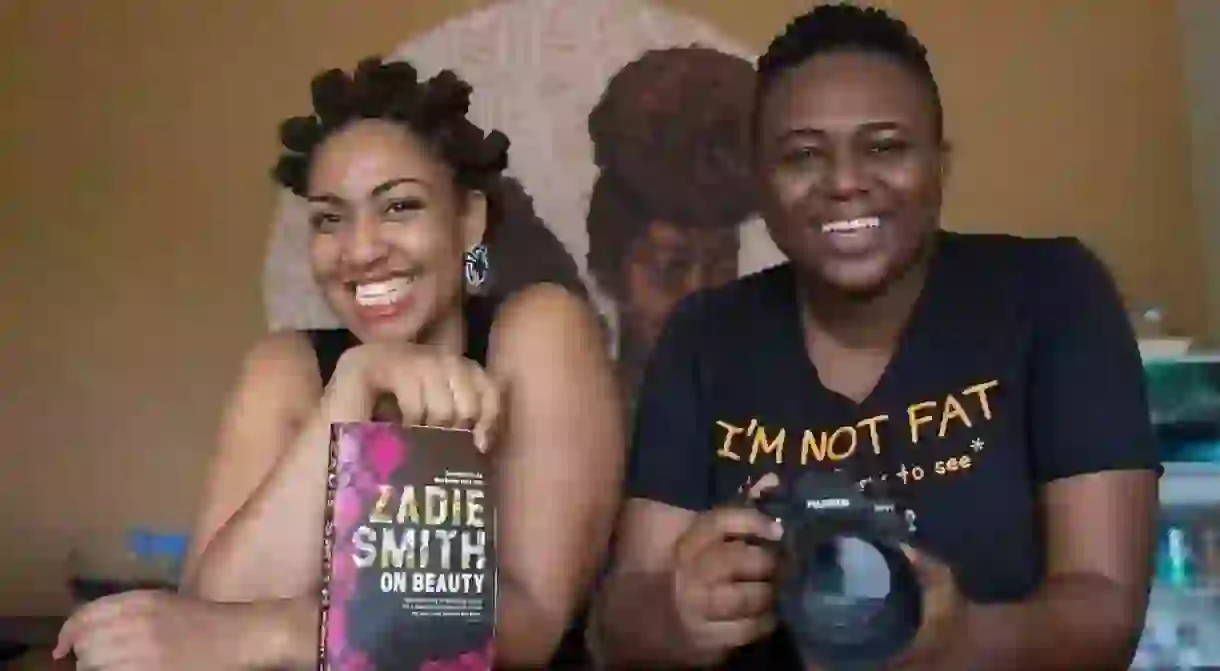Afrolitt': The Web Series Using Black Literature as a Tool for Social Change

Afrolitt’ started with informal book reading clubs and evolved into a platform and community that hosts events, dialogues, and reading groups. It launched the first season of its web series a few months ago, and is currently planning its second season. Afrolitt’ founder Pamela Ohene-Nyako tells us more.
Afrolitt’s first audience were women of African descent in an underground self-run cinema in Lausanne. What has the journey been like?
Our discussions and critical thought process are about gender politics from a feminist approach; deconstructing social standards with respect to sexuality, racism, class or religion. The authors we choose are from diverse black communities around the world. Afrolitt’ is still open to everyone, nonetheless the people we see the least are black men.
Tell us more about the language – does making the web series bilingual affect the nature of the discussions?
I am bilingual, and I’m trying to reach a broader audience so it makes sense for me. But I consider French to be more elitist and sexist than English. For instance, it is culturally important to know when to use vous and tu (the formal and informal use of ‘you’),but in English it is not. Also, the third person plural has no gender in English, and there are not as many gendered declinations.Growing up, my dad speaks Ga, but his dad was Akan. I didn’t even know there was a difference. I thought it was just one thing – Ghanaian.
With the web series, speakers are supposed to make literature content something they can relate to for discussion of more complex issues…
What you see in the web series is similar to the Afrolitt’ group discussions, but in the former it is one-to-one. I come with prepared questions theme-wise, and also character-related. One of the reasons for this choice is to enable those who have not had the opportunity to read the book to participate in the discussion.

Your work is carried out in Lausanne, Geneva and Accra. How different are the interactions in each space with respect to the pan-African dialogue?
I may ask the same questions in different locations, but the answers may differ. Individuality matters. Yaa Gyasi was a breakthrough on several platforms in Switzerland, but in Accra the analysis was quite different.
How does that help in reconnecting Sub-Saharan Africa to the diaspora?
I’ve always heard more voices from the diaspora, so this opened space for me to engage voices from the continent. The same year I founded Afrolitt’ I traveled to Accra and did my research about the Accra art scene and Chale Wote Festival. I saw Poetra‘s concert and that was the first time I met her. I packed up my suitcases with Octavia Butler and Nalo Hopkinson. It was a futuristic summer.

Through this interactive process, how do you envision social change?
The aspect that literature can be made accessible aside just reading and writing directly, e.g. like Writers Project‘s use of radio. I hope I learn as much as others do. Growing up as people of color from Europe, we didn’t have much empowering media. There’s the need for this proactive search to counter oppression due to sexism and racism. For me and others, reading Black was looking for answers, to reconnect and as a therapy.













